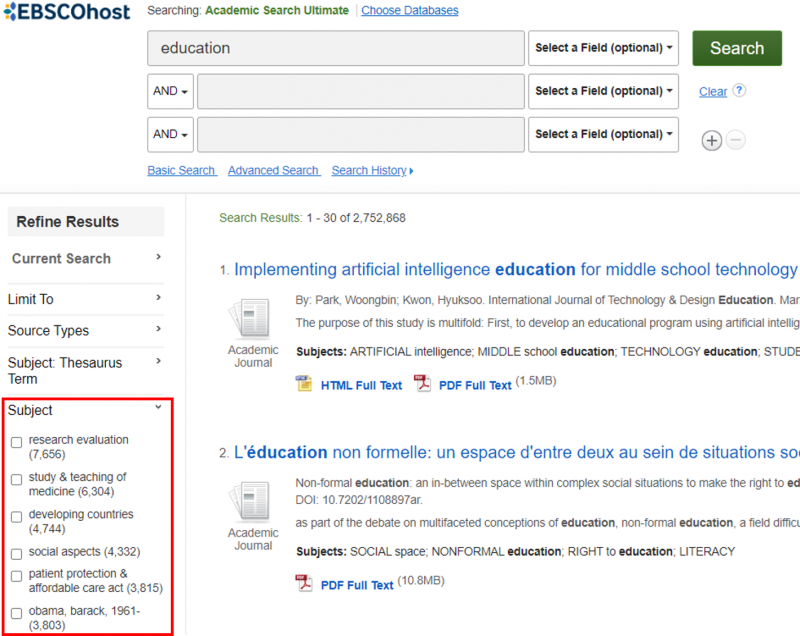Having trouble coming up with a good research topic? Try some of the following strategies for generating ideas.
Peruse current news sources. Use the library's BrowZine tool to virtually flip through magazines, newspapers and journals that the University Libraries subscribe to. Or if you would prefer you can browse through the headlines of online news sources.
Take note of interesting articles and stories that grab your attention. Consider how you might address any issues or challenges highlighted in the article in your research assignment.
Browse the databases. You can explore topics using the University Libraries' research databases. You may want to pick a database that falls under the subject area of your particular assignment.
Once you have selected a database, look for the list of publications. You can often search for publications by subject. Select a publication that appeals to you and click on the most recent issue for a list of current articles.
Keep an eye on your newsfeeds. Consider any interesting topics or issues that have popped up in your newsfeeds lately. Are there issues being raised or controversies being discussed? Scan your social media through the lens of your particular research assignment, and think about how the posts you encounter relate to things you’ve been discussing in class.
Once you've identified a topic you are genuinely interested in, diving into the research will be a much more gratifying experience.
Questions to Ask
WHY did you choose the topic? What interests you about it? Do you have an opinion about the issues involved?
WHO are the information providers on this topic? Who might publish information about it? Who is affected by the topic? Do you know of organizations or institutions affiliated with the topic?
WHAT are the major questions for this topic? Is there a debate about the topic? Are there a range of issues and viewpoints to consider? Are there gaps in knowledge that need to be addressed? Is there a perspective that hasn’t been heard?
WHERE is your topic important: at the local, national or international level? Are there specific places affected by the topic?
WHEN is/was your topic important? Is it a current event or an historical issue? Do you want to compare your topic by time periods?
Honing in on Your Topic
It is important to keep in mind that you do not have to pinpoint your exact topic before beginning your research. Often, you may not be very familiar with your topic. There may be facets of your topic that you are not yet aware of, and questions you don’t yet know to ask. Therefore you may need to start by familiarizing yourself with your topic, and gradually focusing your research.
Gather background information. If your research assignment falls under a course theme (e.g. “education,” “climate change” or “World War II”) you may want to start by learning more about the broader topic. Books can be a great source of background information, and can provide you with a broader overview of your topic. You don’t have to read the full book; there may just be certain chapters that are of interest. Even simply browsing the Table of Contents can be useful for identifying sub-topics and issues.
Use databases to narrow your research topic. A good strategy in the research databases is to start with a broad search, then use the filters to focus in on your topic. Subject terms are descriptive terms used to organize content in a database, and can be very useful for identifying sub-topics, or approaching a topic through a particular lens. For example, take a look at some of the terms that come up for a broad search on “education,” such as "social aspects" and "research evaluation."

Subject terms can usually be found in the description or abstract of an article, as well as on the initial search page. In most databases you can use a search filter (such as the one shown on the left in the screenshot above) to select a specific subject term, which will show you all of the articles that are tagged with that descriptor. Or you can incorporate the subject term into a new search to narrow it down.
Remember, your topic can evolve throughout the research process. Don’t be afraid to follow interesting leads, and adjust your topic as you deepen your understanding and develop a broader perspective.
Resources: Questions to Ask were modified from MIT Libraries Selecting a Research Topic LibGuide, CC BY-NC 2.0